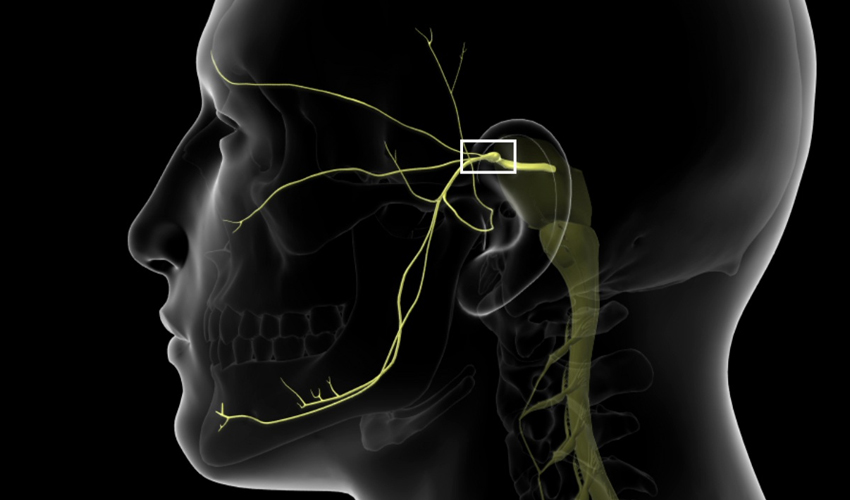Trigeminal Neuralgia

Trigeminal Neuralgia
Trigeminal neuralgia is a chronic pain condition that affects the trigeminal nerve, one of the largest nerves in the head. This nerve is responsible for transmitting sensations from the face to the brain. Trigeminal neuralgia causes sudden, severe, and stabbing facial pain that can be triggered by even mild stimulation of the face, such as chewing, talking, or touching the skin.
Symptoms of trigeminal neuralgia may include:
-
Intense Facial Pain: The pain is typically described as sharp, shooting, or like an electric shock. It often affects one side of the face, usually around the eyes, nose, lips, forehead, or jaw.
-
Episodes of Pain: Pain episodes can last from a few seconds to several minutes and can occur multiple times a day. Some individuals may experience periods of remission where they are pain-free for weeks or months.
-
Triggers: Certain activities or triggers can provoke the pain, such as eating, talking, brushing teeth, touching the face, or exposure to cold air.
-
Pain-Free Intervals: Between episodes of pain, individuals with trigeminal neuralgia typically have periods of no pain.
-
Exacerbation by Touch: Even gentle touch or a light breeze on the face can trigger intense pain.
-
Unilateral Pain: The pain is usually unilateral, affecting only one side of the face.
-
Muscle Spasms: Some individuals may experience involuntary muscle contractions (spasms) in the face, especially during pain episodes.
Trigeminal neuralgia can significantly impact quality of life, as the pain can be debilitating and interfere with daily activities such as eating, talking, and socializing. The exact cause of trigeminal neuralgia is not always clear, but it's often thought to be related to compression or irritation of the trigeminal nerve by a blood vessel or other structures in the brain.
Treatment for trigeminal neuralgia aims to alleviate pain and improve quality of life. Options may include:
-
Medications: Anticonvulsant medications such as carbamazepine or oxcarbazepine are often prescribed to help control pain. Other medications, such as gabapentin or baclofen, may also be used.
-
Nerve Blocks: Injection of medication directly into the trigeminal nerve can provide temporary relief from pain.
-
Surgery: In cases where medication and other treatments are ineffective, surgical options such as microvascular decompression, gamma knife radiosurgery, or rhizotomy may be considered to relieve pressure on the trigeminal nerve.
-
Alternative Therapies: Some individuals find relief from complementary and alternative therapies such as acupuncture, biofeedback, or relaxation techniques.
It's important for individuals with trigeminal neuralgia to work closely with a healthcare provider to develop a personalized treatment plan tailored to their specific needs and symptoms.




